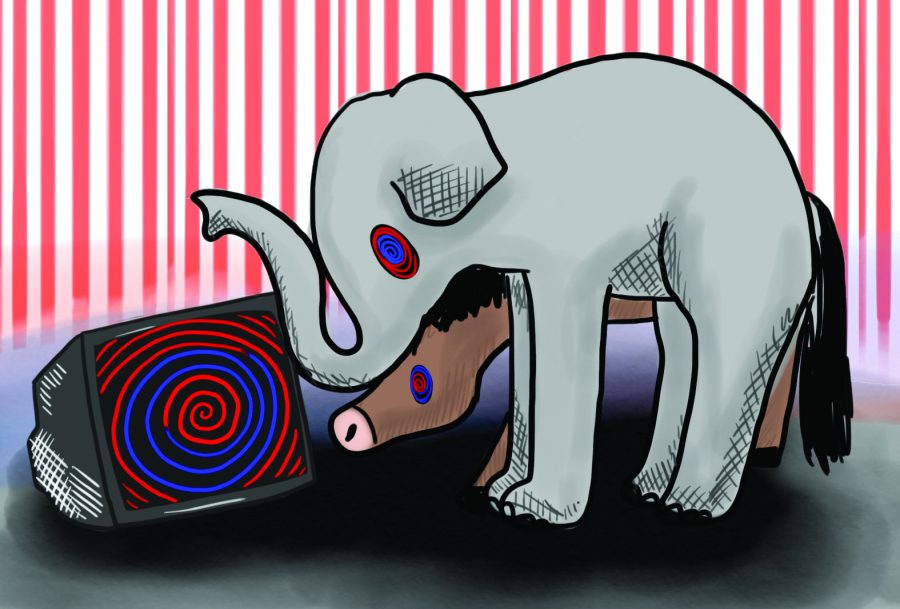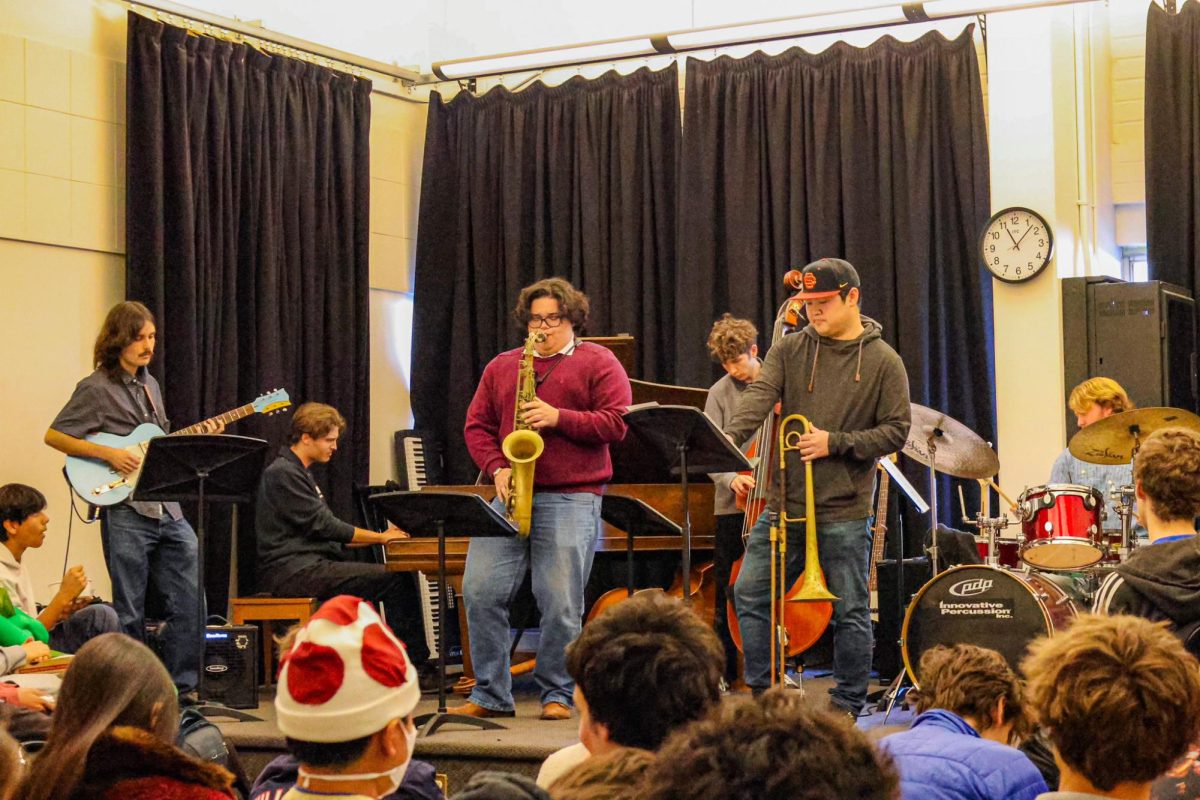Laughter blared in the background as Ava Benavente ’20 watched the latest episode of Saturday Night Live come to a close. Before the screen went black, a key figure caught her eye: Alec Baldwin, covered in deliberately orange fake tan, a cheap blonde wig and a distinct facial expression emulating President Donald Trump.
Benavente said she was not surprised by the controversial skit. Political commentary within the media is gaining significant popularity, especially in late-night television comedy shows, according to The New York Times. SNL alone has done 31 skits parodying the president since his election and has featured a number of other politicians, including Brett Kavanaugh following his confirmation as a Supreme Court Justice.
Although she said she enjoys the politically charged entertainment on shows like SNL, Benavente said she feels they often present an evident bias.
“Although I am not in support of what is happening in politics, I do think they need to show both sides of every issue because right now, obviously, the entertainment industry is very liberal,” Benavente said. “They should strive to include every view in every show that they’ll talk about politics in.”
Other students said that they think television coverage of politics is also too exaggerated and does not reflect moderates within both political parties.
“Some of the political discussion certainly can have a time and place, but almost every SNL skit seems to be political,” Charlie Kogen ’19 said. “I feel like SNL has gotten a lot more politically charged this season, but I think that in order to create less division, they should focus less on parodies of reality and more on imaginary political situations, although the parodies do have an appeal to many people.”
Kogen said that political commentary in media may be fracturing the audience.
“I watch late night talk shows like [The Late Show] with Sephen Colbert and [Real Time with] Bill Maher,” Kogen said. “I do think that these shows contribute to more division within our society because they do poke fun at politics. However, I also think that these shows can provide a meaningful check on government and politics. “
Some students, like Leyah Barris ’19, also expressed concern about the lack of entertainment media coverage on more structural problems within the government, regardless of a specific political party.
“I think there should be a wider range of subjects covered,” Barris said. “Instead of covering all aspects of politics, one scandal is often focused on, and these scandals often distract from other serious issues that also need coverage. The current administration seems to garner all of the media’s attention, and more important matters are often skipped over to cover government scandals 24/7.”
However, other students, such as Kogen, also believe that while entertainment may be an important way to inform citizens politically, the media industry should be careful not to become overly polarized.
“I think the media plays a large role in informing our public opinion, especially as narrowcasting has become more prevalent and people are increasingly divided on issues,” Kogen said. “I think the media has played a large role for decades, and I think now there is a disproportionate emphasis on conflict and opinion in the media. I also think it makes people more polarized and unwilling to find common ground and reach meaningful solutions.”
According to a Science Daily study, consumers of entertainment TV are influenced politically by political content in the shows.
Ben Weinberg ’21, who identifies as conservative, said he believes that the media is politically biased, which not only results in disproportionate representation but also actively hurts certain political groups.
“When the media, which is mostly liberal, includes completely leftist content like SNL mocking Trump, Jimmy Kimmel proposing new liberal policies on talk shows and more, it consolidates support among fans but also alienates independents and moderate viewers, which may hurt their political agenda,” Weinberg said. “Additionally, there is close to no conservative media. Nothing is televised except Fox News, which misrepresents many conservatives because it is overly partisan.”
The U.S. media is one of the most polarized in the world, according to a Reuters study, which looked at right-wing responses to mainstream media and liberal backlash to conservative media.
Barris expressed concerns that talk shows are lacking a much needed balance between political and apolitical commentary.
“Too much [expression of political opinion means that] people get frustrated,” Barris said. “I think that if a show or movie can find the perfect balance, it is definitely a benefit. I think talk shows are a great platform for politics because they are able to combine the stories of the news and the comedy of movies and TV. Talk shows are the perfect recipe to find this balance.”
Benavente said she views the media and entertainment industry as a platform to shape the political views of future generations and feels that it must be carefully handled.
“A lot of kids don’t understand why their [parents] are upset about the political climate, and I think that should be explained in TV shows because that is the world they’re going to grow up in,” Benavente said. “Although many people think they’re too young to be exposed to this environment, it’s important that they know what’s going on.”





























